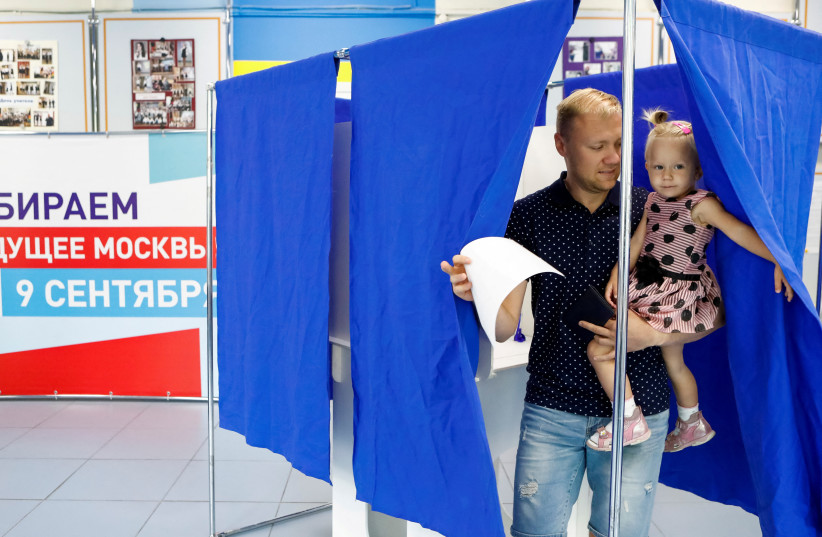Russians finish voting on Sunday in tightly controlled regional and local elections that are likely to be interpreted by authorities as a vote of confidence in President Vladimir Putin.
Governors including Moscow's powerful mayor are up for election in 21 of Russia's regions from Siberia to the Black Sea coast.
Russian-installed authorities in the Ukrainian regions of Donetsk, Luhansk, Zaporizhzhia, and Kherson, which Moscow unilaterally declared its territory last September, are also holding polls - which Kyiv and its allies have condemned.
Kremlin spokesman Dmitry Peskov said it was "difficult to overstate the importance" of the round of elections.
In 2018, when the 21 regions last voted, an unpopular increase in the state pension age saw the ruling United Russia party lose four governors’ races, a stinging defeat for a group boosted by the Kremlin's near-monopoly of political news coverage.

But with years of suppression of dissent tightening significantly since Russia's invasion of Ukraine early last year, which it calls a "special military operation," such surprises seem unlikely this time round.
Remaining opposition figures have been cowed, exiled or, like the Kremlin's most potent critic Alexei Navalny, jailed. Electoral rights groups have been disbanded, and critical media shut down or driven abroad.
Although his once-influential political organization has largely been destroyed, Navalny has tried to revive a strategy of encouraging his supporters to vote for those most likely to defeat United Russia.
All significant legal political forces, including the Kremlin-loyal opposition parties that provide a semblance of competition, are broadly loyal to Putin and support the war in Ukraine.
Moscow seeks to avoid election upsets
Even so, the Kremlin has gone to unusual lengths to avoid upsets. Strong opposition candidates, including sitting members of parliament, have been blocked from running for governor in their home regions.
Only one gubernatorial race - in the tiny Siberian region of Khakassia, where a Communist upset a Kremlin-backed incumbent in 2018 - was seen by observers as remotely competitive.
However, with the Communist governor seemingly heading for re-election, his United Russia opponent - a lawmaker who had fought in Ukraine - unexpectedly announced on Sept. 2 he was quitting the race on health grounds.
Stanislav Andreychuk, co-chair of Golos, a voting rights watchdog that Moscow has declared a "foreign agent," said the Kremlin had probably wanted to avoid an embarrassing defeat with a presidential election due in March.
The Kremlin has also expanded new electoral practices that critics say help in falsifying results.
Some regions are voting over several days, which critics say stretches observers thin. In Russian-controlled Kherson, where voting began on Aug. 31, the governor on Thursday declared Sept. 8 a holiday to encourage those who had not yet voted to do so.
Others will employ an online voting scheme that opposition activists allege was used to illegitimately boost United Russia’s vote in the 2021 election to the lower house of parliament, the State Duma.
Authorities deny all allegations of vote manipulation. But Andreychuk said he expected turnout in the various elections to be down despite strong pressure, usually from employers in state institutions or large concerns, to cast ballots.
In a report in July, Golos likened the atmosphere surrounding the elections to "martial law" and said authorities had "officially recognized their willingness to ignore their own constitutional standards."
In part of the southwestern region of Belgorod, which has suffered from repeated cross-border shelling blamed on Ukraine, voting for two local assemblies was postponed due to a state of emergency in effect in 15 locations.
